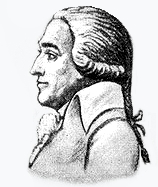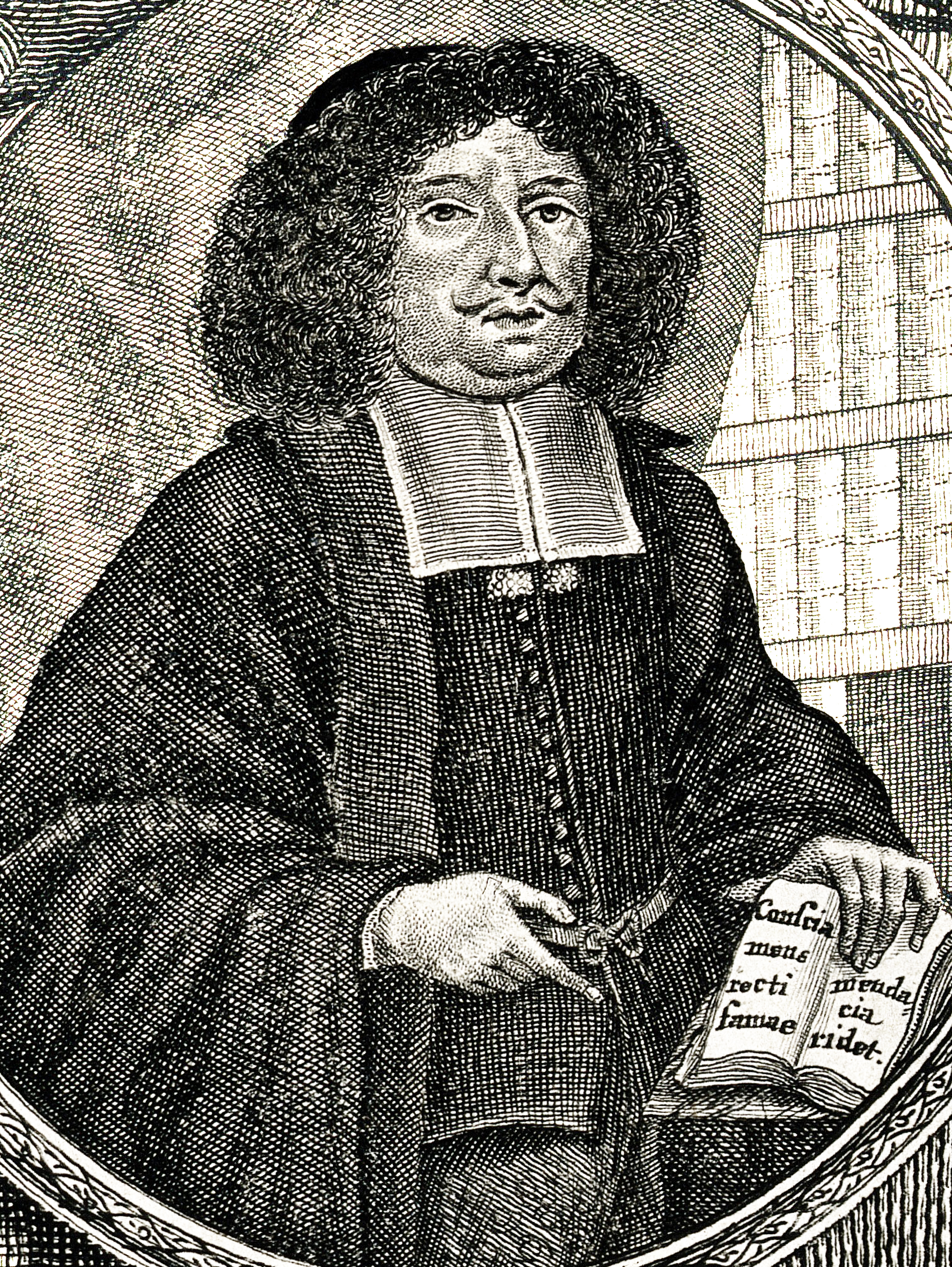|
Johann Tobias Lowitz
Johann Tobias Lowitz (russian: Товий Егорович Ловиц 25 April 1757 – 7 December 1804) was a German-Russian chemist and pharmacist. He was among the first to notice the clarification of liquids by the use of charcoal for adsorption and applied it for a range of applications. Biography Lowitz was born in Göttingen to the mathematician and cartographer Georg Moritz (1722–74) and Dorothea née Riepenhausen (1723–65). In 1767 he moved to St Petersburg along with his father and joined the expedition to the Caspian region during which he and his father were captured by a band of rebels who hanged his father. Lowitz escaped and after returning, studied at the St. Petersburg Gymnasium and became an assistant at the court pharmacy. He went to Göttingen to study pharmacy from 1780 and from 1783 he began to make a journey on foot to St. Petersburg and returned to work at the court pharmacy in 1784. He conducted experiments in chemistry and in 1785 he developed met ... [...More Info...] [...Related Items...] OR: [Wikipedia] [Google] [Baidu] |
Göttingen
Göttingen (, , ; nds, Chöttingen) is a college town, university city in Lower Saxony, central Germany, the Capital (political), capital of Göttingen (district), the eponymous district. The River Leine runs through it. At the end of 2019, the population was 118,911. General information The origins of Göttingen lay in a village called ''Gutingi, ''first mentioned in a document in 953 AD. The city was founded northwest of this village, between 1150 and 1200 AD, and adopted its name. In Middle Ages, medieval times the city was a member of the Hanseatic League and hence a wealthy town. Today, Göttingen is famous for its old university (''Georgia Augusta'', or University of Göttingen, "Georg-August-Universität"), which was founded in 1734 (first classes in 1737) and became the most visited university of Europe. In 1837, seven professors protested against the absolute sovereignty of the House of Hanover, kings of Kingdom of Hanover, Hanover; they lost their positions, but be ... [...More Info...] [...Related Items...] OR: [Wikipedia] [Google] [Baidu] |
Saint Petersburg
Saint Petersburg ( rus, links=no, Санкт-Петербург, a=Ru-Sankt Peterburg Leningrad Petrograd Piter.ogg, r=Sankt-Peterburg, p=ˈsankt pʲɪtʲɪrˈburk), formerly known as Petrograd (1914–1924) and later Leningrad (1924–1991), is the second-largest city in Russia. It is situated on the Neva River, at the head of the Gulf of Finland on the Baltic Sea, with a population of roughly 5.4 million residents. Saint Petersburg is the fourth-most populous city in Europe after Istanbul, Moscow and London, the most populous city on the Baltic Sea, and the world's northernmost city of more than 1 million residents. As Russia's Imperial capital, and a historically strategic port, it is governed as a federal city. The city was founded by Tsar Peter the Great on 27 May 1703 on the site of a captured Swedish fortress, and was named after apostle Saint Peter. In Russia, Saint Petersburg is historically and culturally associated with t ... [...More Info...] [...Related Items...] OR: [Wikipedia] [Google] [Baidu] |
Phlogiston Theory
The phlogiston theory is a superseded scientific theory that postulated the existence of a fire-like element called phlogiston () contained within combustible bodies and released during combustion. The name comes from the Ancient Greek (''burning up''), from (''flame''). The idea was first proposed in 1667 by Johann Joachim Becher and later put together more formally by Georg Ernst Stahl. Phlogiston theory attempted to explain chemical processes such as combustion and rusting, now collectively known as oxidation. It was challenged by the concomitant weight increase, and was abandoned before the end of the 18th century following experiments by Antoine Lavoisier and others. Phlogiston theory led to experiments which ultimately concluded with the discovery of oxygen. Theory Phlogiston theory states that ''phlogisticated'' substances contain phlogiston and that they ''dephlogisticate'' when burned, releasing stored phlogiston which is absorbed by the air. Growing plants then absor ... [...More Info...] [...Related Items...] OR: [Wikipedia] [Google] [Baidu] |
Mikhail Lomonosov
Mikhail Vasilyevich Lomonosov (; russian: Михаил (Михайло) Васильевич Ломоносов, p=mʲɪxɐˈil vɐˈsʲilʲjɪvʲɪtɕ , a=Ru-Mikhail Vasilyevich Lomonosov.ogg; – ) was a Russian Empire, Russian polymath, scientist and writer, who made important contributions to literature, education, and science. Among his discoveries were the atmosphere of Venus and the law of conservation of mass in chemical reactions. His spheres of science were natural science, chemistry, physics, mineralogy, history, art, philology, optical devices and others. The founder of modern geology,Vernadsky, V. (1911) Pamyati M.V. Lomonosova. Zaprosy zhizni, 5: 257-262 (in Russian) [In memory of M.V. Lomonosov] Lomonosov was also a poet and influenced the formation of the modern Russian language, Russian literary language. Early life and family Lomonosov was born in the village of Kholmogorsky District, Mishaninskaya (later renamed Lomonosovo, Arkhangelsk Oblast, Lomonosovo in ... [...More Info...] [...Related Items...] OR: [Wikipedia] [Google] [Baidu] |
Lowitz Arc
A Lowitz arc is an optical phenomenon that occurs in the atmosphere; specifically, it is a rare type of ice crystal halo that forms a luminous arc which extends inwards from a sun dog (parhelion) and may continue above or below the sun. History The phenomenon is named after Johann Tobias Lowitz (or Lovits) (1757 - 1804), a German-born Russian apothecary and experimental chemist. On the morning of June 18, 1790 in St. Petersburg, Russia, Lowitz witnessed a spectacular display of solar halos. Among his observations, he noted arcs descending from the sun dogs and extending below the sun: Original (in French): ''6. Ces deux derniers parhélies qui se trouvoient à quelque distance des intersections du grand cercle horizontal par les deux couronnes qui entourent le soleil, renvoyoient d'abord des deux cotés de parties d'arc très courtes colorées ''xi'' & ''yk'' dont la direction s'inclinoit au dessous du soleil jusqu'aux deux demi-arcs de cercle intérieurs ''die'' & ''dke'' ... [...More Info...] [...Related Items...] OR: [Wikipedia] [Google] [Baidu] |
1757 Births
Events January–March * January 2 – Seven Years' War: The British Army, under the command of Robert Clive, captures Calcutta, India. * January 5 – Robert-François Damiens makes an unsuccessful assassination attempt on Louis XV of France, who is slightly wounded by the knife attack. On March 28 Damiens is publicly executed by burning and dismemberment, the last person in France to suffer this punishment. * January 12 – Koca Ragıp Pasha becomes the new Grand Vizier of the Ottoman Empire, and administers the office for seven years until his death in 1763. * February 1 – King Louis XV of France dismisses his two most influential advisers. His Secretary of State for War, the Comte d'Argenson and the Secretary of the Navy, Jean-Baptiste de Machault d'Arnouville, are both removed from office at the urging of the King's mistress, Madame de Pompadour. * February 2 – At Versailles in France, representatives of the Russian Empire an ... [...More Info...] [...Related Items...] OR: [Wikipedia] [Google] [Baidu] |
1804 Deaths
Eighteen or 18 may refer to: * 18 (number), the natural number following 17 and preceding 19 * one of the years 18 BC, AD 18, 1918, 2018 Film, television and entertainment * ''18'' (film), a 1993 Taiwanese experimental film based on the short story ''God's Dice'' * ''Eighteen'' (film), a 2005 Canadian dramatic feature film * 18 (British Board of Film Classification), a film rating in the United Kingdom, also used in Ireland by the Irish Film Classification Office * 18 (''Dragon Ball''), a character in the ''Dragon Ball'' franchise * "Eighteen", a 2006 episode of the animated television series ''12 oz. Mouse'' Music Albums * ''18'' (Moby album), 2002 * ''18'' (Nana Kitade album), 2005 * '' 18...'', 2009 debut album by G.E.M. Songs * "18" (5 Seconds of Summer song), from their 2014 eponymous debut album * "18" (One Direction song), from their 2014 studio album ''Four'' * "18", by Anarbor from their 2013 studio album '' Burnout'' * "I'm Eighteen", by Alice Cooper commonl ... [...More Info...] [...Related Items...] OR: [Wikipedia] [Google] [Baidu] |
Scientists From Göttingen
A scientist is a person who conducts scientific research to advance knowledge in an area of the natural sciences. In classical antiquity, there was no real ancient analog of a modern scientist. Instead, philosophers engaged in the philosophical study of nature called natural philosophy, a precursor of natural science. Though Thales (circa 624-545 BC) was arguably the first scientist for describing how cosmic events may be seen as natural, not necessarily caused by gods,Frank N. Magill''The Ancient World: Dictionary of World Biography'', Volume 1 Routledge, 2003 it was not until the 19th century that the term ''scientist'' came into regular use after it was coined by the theologian, philosopher, and historian of science William Whewell in 1833. In modern times, many scientists have advanced degrees in an area of science and pursue careers in various sectors of the economy such as academia, industry, government, and nonprofit environments.'''' History The roles ... [...More Info...] [...Related Items...] OR: [Wikipedia] [Google] [Baidu] |






